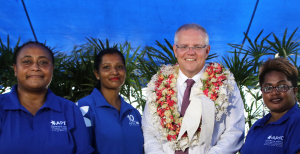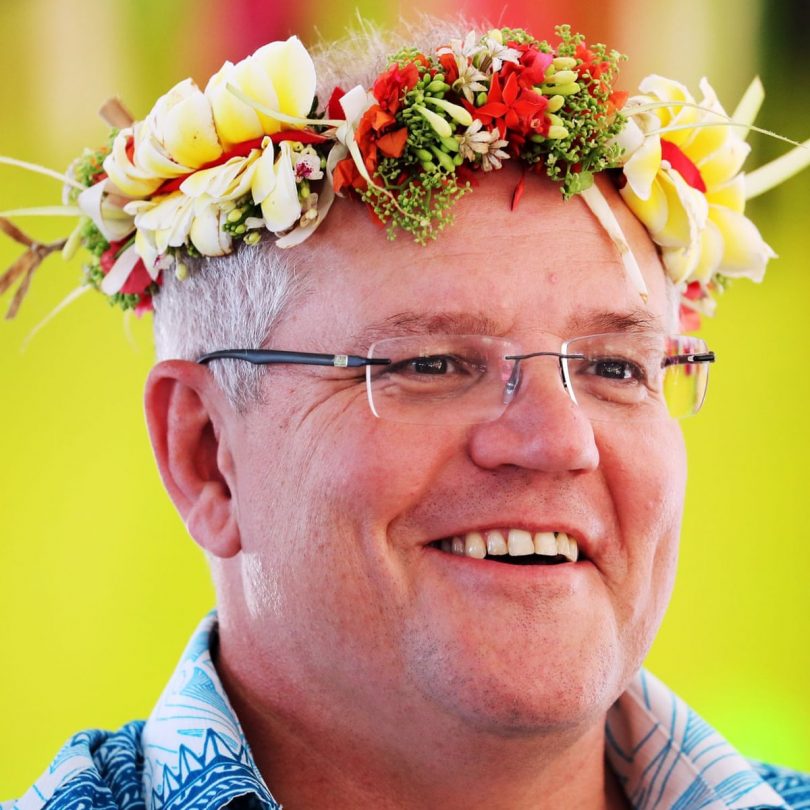Having the ability to influence the thinking of others through mainstream media is crucial for the Australian Government.
That’s why the Australian Broadcasting Corporation’s decision to close its shortwave services to the Pacific caused such an outrage.
Even more so, now, that the new superpower China has dedicated more of its focus to the region, including its economic commitment to the Pacific.
The so-called rise of China has intensified interest in Australia’s role in this geo-politically sensitive area.
To be fair, China was ready when Australia’s voice in the Pacific, the ABC’s Radio Australia, pulled out of the region, switching off its shortwave transmissions in 2017.
Those empty airwaves were soon strategically filled by English speaking news programs from Chinese state media.
As a result Chinese media has become increasingly influential on the Pacific, as it is significantly underserved by mainstream media.
Until this time, Australia had had one of the main voices in the region, a position it maintained for historic reasons, but also as a result of its key position as a geo-strategic priority.
While shortwave might still be a reliable source of transmitting information to the outter reaches of the Pacific islands, digitalisation has had a rapid take up in island communities, an so has the demand for content.
This was recognised by the Government and the program “Amplifying Australia’s voice” was implemented.
The Australian Prime Minister, Scott Morrison defines the importance of the Pacific alliance in his 2018 speech :“This is our patch. This is our part of the world. This is where we have special responsibilities.”

Source: Australian Institute of National Affairs, 2019
The program received $17.1m funding, directed towards commercial networks to provide 1000 hours of new Australian content for three years to Pacific broadcasters across the region.
Commercial television companies have denied seeking the funds for the program provided by the Government.
As for what the Pacific public want from the Australian broadcaster, feedback is limited. All Australia knows is that the decision to cut the radio frequency was a missed opportunity for projecting soft power.
What use is Dancing With the Stars in the Pacific?
The backbone of commercial television schedule is reality tv which is programmed exclusively for Australian, not Pacific, audiences.
At a time when China’s diplomatic and media presence is on the rise in the region, money needs to be injected into balanced, fair and accurate content about important issues rather than episodes of Dancing with The Stars.
“Having the opportunity to watch the same stories on our screens will only deepen the connection with our Pacific families,” Ministers Paul Fletcher and Alex Hawke said in a joint statement in May 2020.
This statement highlighted a distinct lack of understanding of the cultural diversity of the Pacific nations.
Australia is a primarily Western culture, whereas Pacific Nations is diverse and remote, with several hundred distinct languages spoken across the region.
Pacific leaders know they need strong media.
“A strong Pacific media is able to identify potential internal and external destabilisers of peace in the region” Director General of the Pacific Islands Forum Dame Meg Taylor said.
This statement shows that Australia needs to focus on collaboration with the Pacific nations, through talking with the region, not at the region.
Therefore, the Pacific needs a public broadcaster, like the ABC, which has specific experience with exposure and expertise in the region making it possible for them to steer its own media agenda and project their vision.
With commercial television, there is a risk losing the Pacific voice between themselves and the wider world.
Meg Taylor described the ABC as a “stalwart” for providing impartial analysis in an increasingly crowded and complex region.
Sadly, the fragility of the Government and lack of control over the ABC have led to an underserved Pacific nation and consequently, the Government has made the tactical decision to use commercial television.
A new broadcaster drawing on the ABC
If handing the reigns over to commercial TV is an attempt to flex some ‘soft power’ muscle to China’s growing influence in the region, surely there is a better way to execute this.
The Pacific Nations now face years of Australian reality television.
This is a missed opportunity for Australian journalists from our valued public broadcaster, the ABC, to project informative broadcasting to the region and to show by example, the value of great journalism.
Australian journalists have the ability to be the very best of soft power agents, if what is broadcast is credible, accessible, relevant, and distinctive.

